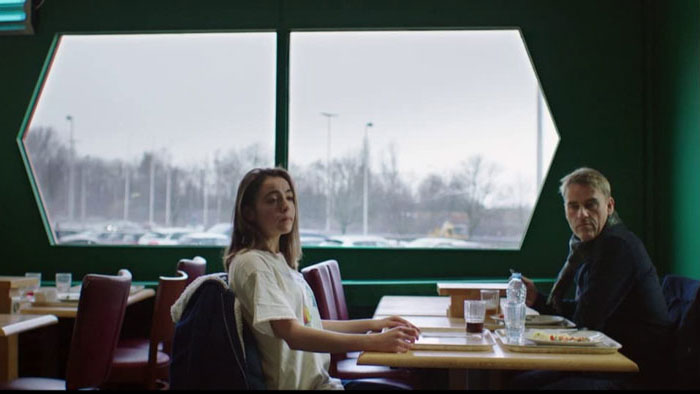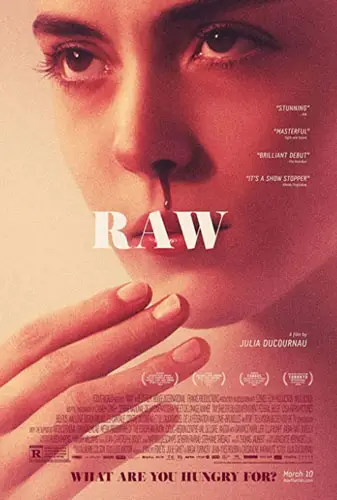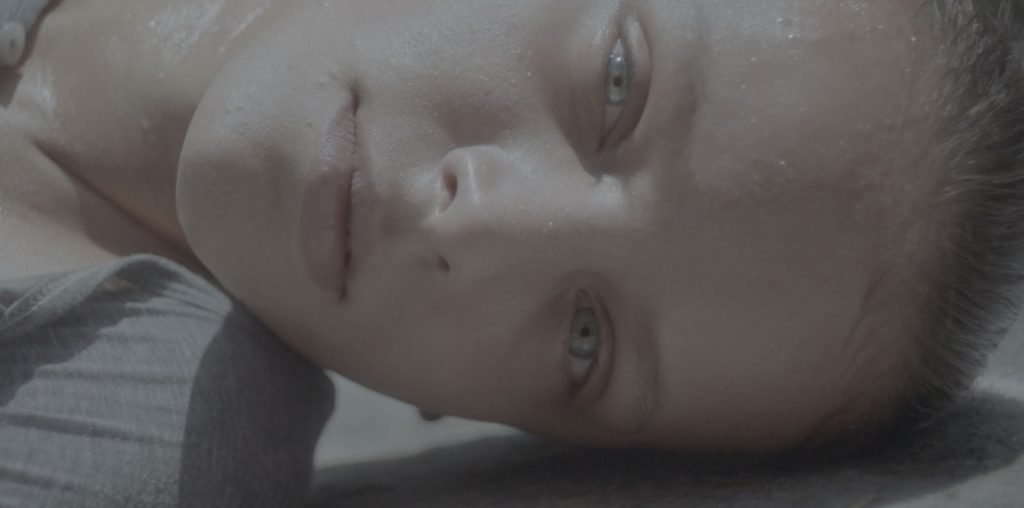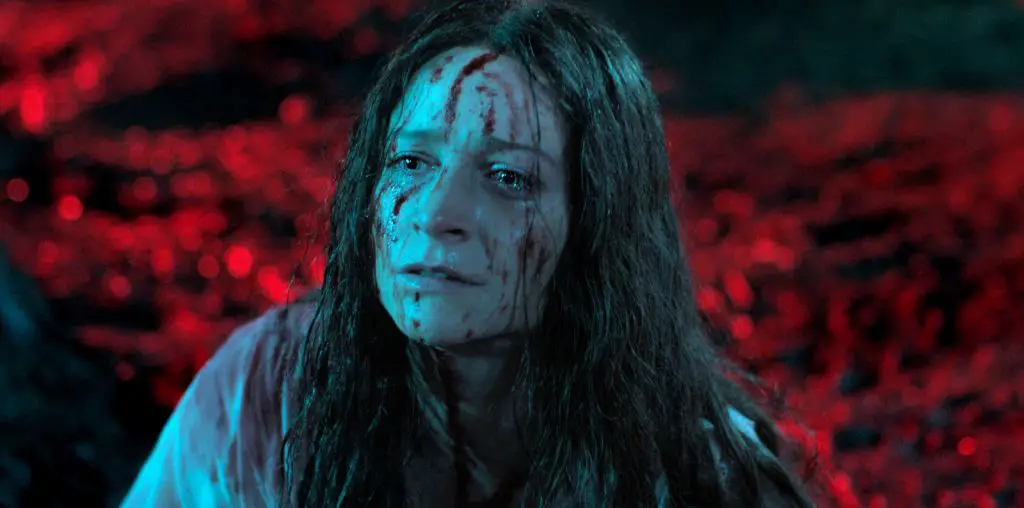
People were shocked when Titane, by French director Julia Ducournau, won the Palme d’Or. While critics hailed it as bold and original, it is uncommon for Cannes to award the grand prize to the director of a genderqueer body horror film over the likes of more established dramatists. But cinephiles everywhere should have anticipated the filmmaker’s pending arrival as a directorial force based on her debut feature Raw, whose straightforward plot serves as a perfect canvas for the varied and complex themes explored by Ducournau.
Justine (Garance Marillier) is a mild-mannered vegetarian being dropped off by her parents at a veterinary school. Both of her parents (Laurent Lucas and Joana Preiss) attended the school, and her older sister, Alexia (Ella Rumpf), is already deep into her studies at the college. Even her roommate, Adrien (Rabah Nait Oufella), seems decent enough compared to all the other horrible roommate possibilities. On paper, it appears as though vet school will be easy for the young lady. However, that is far from the reality. She is immediately exposed to all sorts of sadistic hazings by the older students. One such incident sees the virgin forced to eat meat, which awakens something deep in her. Now, Justine has a serve, insatiable appetite for human flesh. Potentially, not even Alexia or Adrien are safe from Justine’s horrific, ravenous behavior.

“…Justine has a serve, insatiable appetite for human flesh.”
Ducournau does not hide her influences, which are apparent from the first frame. There is a blood-soaked hazing ritual reminiscent of De Palma’s Carrie. A car crash recalls Cronenberg’s Crash. But, what elevates Raw above the level of genre imitation are the myriad of themes explored. Allusions to and themes revolving around conformity, eating disorders, misogyny, the female body, rape culture, predatory behavior, the questionable hard divide between animal and human, and Freudian family dynamics are all there. As if all that were not enough, I found myself thinking about some of the more latent themes present after the credits rolled. I could not stop thinking about phenomena such as consumption and assimilation and how those themes go back to horror’s oldest roots.
It should not go unnoticed that Ducournau gives viewers some amazing scenes that capture the poetry found within the grotesque. A scene involving the sedation and treatment of a horse is mesmerizing. Another moment involving Justine’s consumption of a body part with a corresponding orgasmic reaction on her part works on every level — visually, thematically, and erotically. The director even manages to weave in very subtle absurdist humor into the narrative. Perhaps absurdity is the element underpinning all of the themes the filmmaker is juggling. It is so striking because it is so pervasive in the world around us. It can often be found in those who contradictorily boast that they live a “cruelty-free” lifestyle while still willingly participating in a consumerist economy/culture of exploitation. Of course, it goes without saying that I cannot wait to watch Titane.

"…amazing scenes that capture the poetry found wthin the grotesque."


